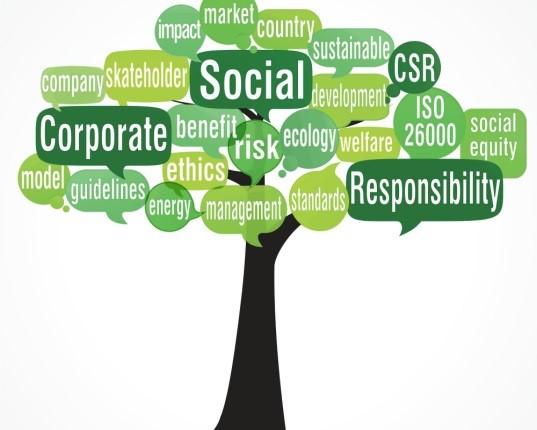What does ESR stand for in business sustainability? The acronym ESR stands for environmental, social, and responsibility. This concept refers to a company’s policies and operations that are aimed to protect both the environment and society.
But what does this mean exactly? What kind of impact does ESR have on businesses when it comes to achieving sustainability? And how can organizations overcome any potential challenges that come with implementing these practices?
In this blog post, we’ll explore what does ESR stand for in business sustainability and look at how companies can benefit from incorporating ESR strategies into their organizational structure.
Table of Contents
What does ESR stand for in business sustainability?
ESR stands for environmental, social, and responsible (ESR) business practices. It is a form of corporate sustainability that focuses on the triple bottom line of people, planet, and profit.
ESR has become increasingly important in recent years as businesses have come to recognize their responsibility to protect the environment, promote social justice, and make a positive contribution to society while still achieving financial success.
Definition of ESR
ESR is an approach to business management that seeks to balance economic growth with environmental protection and social equity. It involves taking into account all three aspects when making decisions about operations, products, or services. This includes considering the impact of activities on natural resources such as air quality or water supplies, how they affect local communities, whether they are fair and just, and if they will generate long-term profits.
Examples of ESR
Unilever, one of the world’s largest consumer goods manufacturers, demonstrated its commitment to ESR principles when it launched its Sustainable Living Plan in 2010. This plan focused on reducing waste throughout Unilever’s supply chain while also improving health outcomes for customers through better nutrition education.
Similarly, Nestle recently announced plans for zero net deforestation across all its global operations by 2022. This demonstrates how large multinational organizations can use their influence towards achieving greater sustainability goals.
How ESR Impacts Business Sustainability
Financial Benefits
ESR is a set of standards that businesses can use to measure their sustainability. By adhering to these standards, businesses can benefit from improved financial performance.
For example, companies that invest in renewable energy sources or sustainable practices may be eligible for tax credits or other incentives.
Additionally, companies that are seen as socially responsible may attract more customers who are willing to pay a premium for ethical products and services.
Environmental Benefits
Companies can reduce their carbon footprint by investing in green technologies such as solar panels or wind turbines, reducing water usage through efficient irrigation systems and wastewater treatment plants, and improving waste management processes.
In addition, they can improve air quality by using clean fuels and adopting low-emission manufacturing processes. These measures not only help the environment but also make the company more attractive to potential investors due to its commitment to sustainability.
Social Benefits
The implementation of ESR initiatives has many social benefits as well. Companies that adhere to these standards often have better working conditions for employees, resulting in higher morale and productivity levels.
Additionally, businesses that practice corporate social responsibility (CSR) activities such as donating money or resources towards green causes create positive public relations opportunities which lead to increased brand recognition.
Different Types of ESR
Energy Efficiency is a type of ESR that focuses on reducing the amount of energy used by businesses. This can be done through energy-efficient lighting, appliances, and other equipment.
Renewable Energy Sources are another type of ESR that involves utilizing natural resources like sunlight or wind to generate electricity for businesses instead of relying on fuel-based sources. Renewable energy sources have numerous benefits including lower electricity bills, lower emissions, and improved public health outcomes due to reduced air pollution levels.
Waste Management and Recycling are essential components of any sustainable business model. By implementing comprehensive waste management plans, businesses can minimize their environmental impact by reducing the amount of waste sent to landfills or incinerators which release harmful pollutants into the atmosphere.
Such plans should include recycling programs for paper products, plastic containers, glass bottles/jars, and metal cans/tins as well as composting organic materials such as food scraps or yard trimmings. Reuse items whenever possible, donate usable items, buy recycled goods, and properly dispose of hazardous materials.
The Challenges of Implementing ESR in Businesses
Implementing ESR in a business organization can be a costly endeavor. Companies must consider the cost of investing in new technology, training staff on how to use it, and developing processes for measuring progress against sustainability goals.
Another challenge faced by businesses when implementing ESR is technical limitations. For example, many organizations lack access to reliable data or have difficulty collecting accurate information about their operations due to outdated systems or limited resources. This can make it difficult for companies to accurately measure their progress toward sustainability goals and identify areas where improvements are needed.
Businesses must also consider regulatory compliance issues that could arise from implementing ESR initiatives. Depending on the industry and location of the business, there may be specific laws or regulations governing environmental practices that need to be taken into account when planning an ESR strategy.

(Source)
FAQs About What Does ESR Stand For in Business Sustainability
What is ESR social responsibility?
ESR social responsibility is the commitment of a business to act ethically and contribute to economic development while improving the quality of life of its employees, their families, local communities, and society at large. This includes making decisions that are in line with ethical values such as fairness, respect for human rights, environmental sustainability, transparency, and accountability.
What is the difference between CSR and ESR?
CSR (Corporate Social Responsibility) is a business practice that involves taking responsibility for the company’s actions and their impact on society, the environment, stakeholders, and other members of the public. It encompasses a wide range of activities such as philanthropy, environmental protection, community involvement, and ethical practices in production and marketing.
ESR (Environmental Social Responsibility) is an extension of CSR which focuses specifically on environmental sustainability. This includes reducing waste and emissions from operations as well as supporting green initiatives like renewable energy sources or sustainable agriculture practices. ESR also emphasizes social responsibility by ensuring fair labor standards are met in all aspects of the supply chain.
Conclusion
Now that you know what does ESR stand for in business sustainability, consider developing sustainable practices in your company.
ESR can help organizations reduce their environmental impact, create a positive social environment, and take responsibility for their actions. Implementing ESR initiatives can be challenging but with the right strategies and commitment from all stakeholders, businesses can overcome these challenges to achieve long-term sustainability goals.
{“@context”:”https:\/\/schema.org”,”@type”:”FAQPage”,”mainEntity”:[{“@type”:”Question”,”name”:”What is ESR social responsibility?”,”acceptedAnswer”:{“@type”:”Answer”,”text”:”
ESR social responsibility is the commitment of a business to act ethically and contribute to economic development while improving the quality of life of its employees, their families, local communities, and society at large. This includes making decisions that are in line with ethical values such as fairness, respect for human rights, environmental sustainability, transparency, and accountability. “}},{“@type”:”Question”,”name”:”What is the difference between CSR and ESR?”,”acceptedAnswer”:{“@type”:”Answer”,”text”:”
CSR (Corporate Social Responsibility) is a business practice that involves taking responsibility for the company’s actions and their impact on society, the environment, stakeholders, and other members of the public. It encompasses a wide range of activities such as philanthropy, environmental protection, community involvement, and ethical practices in production and marketing.
ESR (Environmental Social Responsibility) is an extension of CSR which focuses specifically on environmental sustainability. This includes reducing waste and emissions from operations as well as supporting green initiatives like renewable energy sources or sustainable agriculture practices. ESR also emphasizes social responsibility by ensuring fair labor standards are met in all aspects of the supply chain. “}}]}





